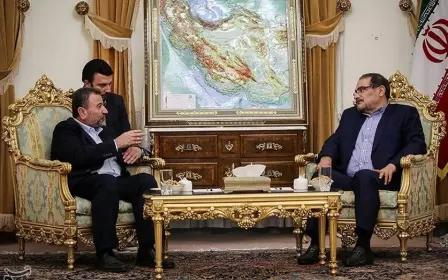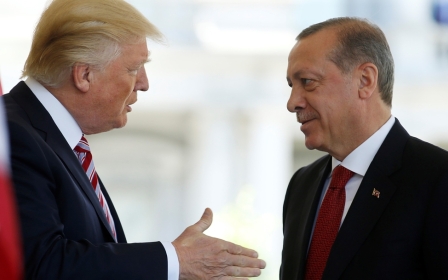Iran sentences 'Mossad agent' to death over scientist assassinations
Iran has sentenced to death a person found guilty of providing information to Israel to help it assassinate several senior nuclear scientists, Tehran's prosecutor said on Tuesday.
The government did not identify the defendant, but Amnesty International said on Monday that Ahmadreza Djalali, an Iranian doctor who studied and taught in Sweden, had been sentenced to death in Iran on espionage charges.
At least four Iranian scientists were killed between 2010 and 2012 in what Tehran said was a scheme of assassinations aimed at sabotaging its nuclear energy programme. Iran hanged one man in 2012 over the killings, saying he had links to Israel.
On the latest conviction, Tehran prosecutor Abbas Jafari Dolatabadi told the judiciary's news agency: "The person had several meetings with (Israeli intelligence agency) Mossad and provided them with sensitive information about Iran's military and nuclear sites in return for money and residency in Sweden."
The headline of the report described the convicted person as a "Mossad agent".
Amnesty said the court verdict against Djalali stated that he had worked with the Israeli government, which then helped him obtain a Swedish residency permit.
Neither Iran nor Amnesty said when the verdict was issued.
Sweden condemned the sentence and said it had raised the matter with Iranian representatives in Stockholm and Tehran.
"We condemn the use of the death penalty in all its forms. The death penalty is an inhuman, cruel and irreversible punishment that has no place in modern law," Swedish Foreign Minister Margot Wallstrom said in an emailed comment.
Djalali, a doctor and lecturer at Stockholm medical university the Karolinska Institute, was arrested in April 2016 and held without access to a lawyer for seven months, three of which were in solitary confinement, according to London-based Amnesty.
"Djalali was sentenced to death after a grossly unfair trial that once again exposes not only the Iranian authorities' steadfast commitment to (the) use of the death penalty but their utter contempt for the rule of law," said Philip Luther, Amnesty’s Middle East advocacy director.
The United States has denied Iran's accusation that it was involved in the scientists' deaths, while Israel has a policy of not commenting on such allegations.
Dolatabadi said the convicted suspect gave Mossad information about 30 nuclear and military scientists including Massoud Ali Mohammadi, who was killed by a remote-controlled bomb attached to a motorcycle outside his home in Tehran.
The judiciary said the defendant was also linked to the assassination of nuclear engineer Majid Shahriari, killed in a bomb attack in November 2010.
Djalali's wife Vida Mehrannia, who lives in Sweden with their two children, has told Amnesty that his physical and mental health has sharply deteriorated since he was detained.
"We are calling for his release because he has not committed any crime," Amnesty quoted her as saying.
The vice-chancellor of the Karolinska Institute, where Djalali received his PhD in disaster medicine in 2012, said he was deeply concerned.
"For many years, he has worked with researchers from all over the world to improve the capacity of hospitals in countries suffering from extreme poverty or affected by disasters and armed conflicts," Ole Petter Ottersen said in a statement published on the university’s website.
"We ask that Dr Djalali be subjected to due process and fair trial."
New MEE newsletter: Jerusalem Dispatch
Sign up to get the latest insights and analysis on Israel-Palestine, alongside Turkey Unpacked and other MEE newsletters
Middle East Eye delivers independent and unrivalled coverage and analysis of the Middle East, North Africa and beyond. To learn more about republishing this content and the associated fees, please fill out this form. More about MEE can be found here.




